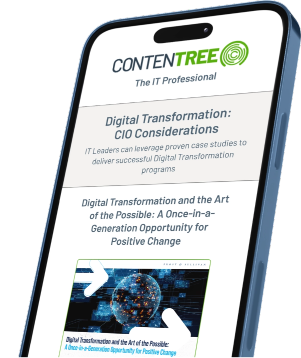- The Importance of Healthcare Procurement
- Key Elements of a Strong Healthcare Procurement Strategy
- How Healthcare Procurement Solutions Are Transforming the Industry
- Leading Healthcare Procurement Software
- Choosing the Right Healthcare Procurement Software
- The Future of Healthcare Procurement Strategy
- Conclusion

Healthcare organizations face constant pressure to deliver high-quality patient care while controlling costs. One of the most important ways to achieve this balance is through effective healthcare procurement.
From medical equipment to everyday supplies, procurement plays a direct role in operational efficiency, compliance, and patient outcomes. With the right healthcare procurement strategy, providers can reduce costs, improve supplier relationships, and ensure that critical resources are always available when needed.
The Importance of Healthcare Procurement
Healthcare procurement goes beyond simply purchasing supplies. It involves building relationships with suppliers, managing contracts, monitoring inventory, and ensuring compliance with strict regulations. In a hospital or clinic, a strong procurement function helps prevent shortages, delays, or inflated costs. Poor procurement practices, on the other hand, can create risks such as supply chain disruptions, expired products, or regulatory penalties.
A thoughtful healthcare procurement strategy aligns spending with organizational goals. By using digital tools and data-driven insights, healthcare leaders can identify savings opportunities, reduce waste, and improve overall supply chain resilience. This ensures patients receive the right care at the right time without compromising quality.
Key Elements of a Strong Healthcare Procurement Strategy
Building a successful procurement approach requires more than negotiation skills. Several core elements form the foundation of an effective strategy:
- Supplier management: Developing strong, diversified supplier networks reduces dependency on a single vendor and creates flexibility in emergencies.
- Demand forecasting: Using historical data and predictive analytics to anticipate needs prevents stockouts or over-ordering.
- Inventory control: Monitoring supplies closely ensures resources are used efficiently and prevents waste.
- Process automation: Digital procurement solutions streamline approvals, track contracts, and improve transparency.
- Integration with operations: Linking procurement with finance, compliance, and clinical teams ensures alignment across the organization.
A healthcare procurement strategy that combines these elements enables providers to respond quickly to challenges while staying compliant with regulatory standards.
How Healthcare Procurement Solutions Are Transforming the Industry
Healthcare procurement solutions are reshaping the way providers source, track, and manage supplies. Cloud-based systems have introduced automation and real-time data access that traditional manual processes could never achieve. Some of the biggest transformations include:
- Automation of purchasing and approvals: Eliminates bottlenecks and speeds up order processing.
- Real-time supply chain visibility: Gives organizations insight into inventory levels and supplier performance.
- Analytics-driven decision making: Helps procurement teams negotiate better contracts and identify cost savings.
- Compliance monitoring: Tracks regulatory requirements and audit readiness automatically.
By adopting healthcare procurement software, organizations reduce the risks of shortages and compliance gaps, while also improving financial control.
Leading Healthcare Procurement Software
Several software solutions stand out for their ability to support healthcare organizations with procurement challenges.
Workday
Workday offers a cloud-based system that integrates procurement with finance and HR functions. Its strengths include analytics, spend visibility, and compliance support. Healthcare organizations often rely on Workday to streamline purchasing processes and ensure procurement decisions align with broader operational goals.
Oracle Procurement Cloud
Oracle provides an end-to-end procurement platform widely used in healthcare. It offers supplier management, contract lifecycle automation, and advanced workflow capabilities. Healthcare providers value its scalability and ability to manage complex supply chains, though it often requires strong IT support during implementation.
SAP Ariba
SAP Ariba is recognized for its global supplier network and strong spend management tools. For healthcare providers, it offers visibility into procurement activities, supports compliance, and connects easily with suppliers worldwide. While powerful, it can take time for teams to fully leverage its capabilities.
Coupa
Coupa delivers a flexible, cloud-based spend management solution. Healthcare organizations benefit from cost control, transparent reporting, and mobile accessibility. Its user-friendly design makes it accessible to busy staff, while its advanced reporting provides procurement teams with insights for better decision-making.
Medius Procurement
Medius is designed to help mid-sized healthcare providers simplify procurement. It automates invoicing, approvals, and spend tracking, giving organizations greater control over their budgets. Many teams find Medius easy to use, making it a practical choice for healthcare organizations that need efficiency without excessive complexity.
Choosing the Right Healthcare Procurement Software
Selecting the right healthcare procurement software depends on the unique needs of each organization. Here are a few considerations:
- Define priorities: Compliance, cost savings, supplier management, or integration with existing systems.
- Check integration capabilities: Ensure the software works with current HR, finance, and clinical platforms.
- Evaluate user experience: Busy healthcare staff need intuitive tools that don’t slow them down.
- Prioritize scalability: As organizations grow, procurement systems should handle larger volumes and additional locations.
- Consider support and training: Implementation and ongoing support are critical for long-term success.
The right choice balances advanced features with ease of use, ensuring procurement strategies can adapt to both everyday needs and future challenges.
The Future of Healthcare Procurement Strategy
Healthcare procurement is evolving quickly. Artificial intelligence will play a larger role in predicting demand and optimizing supply chains. Blockchain could enhance transparency and security in supplier transactions. Sustainability will also shape procurement decisions, as organizations seek eco-friendly and ethically sourced supplies.
In addition, digital procurement platforms will become more closely connected to patient care. For example, predictive analytics could link patient volume forecasts directly to procurement planning, ensuring supplies are always available where they are most needed.
Conclusion
Healthcare procurement is more than just a back-office function. It is a strategic driver of cost savings, compliance, and patient safety. With the right healthcare procurement strategy, providers can streamline processes, build stronger supplier relationships, and ensure uninterrupted care delivery. By embracing digital transformation, healthcare leaders can take procurement from a reactive task to a proactive advantage, ensuring better outcomes for both staff and patients.

